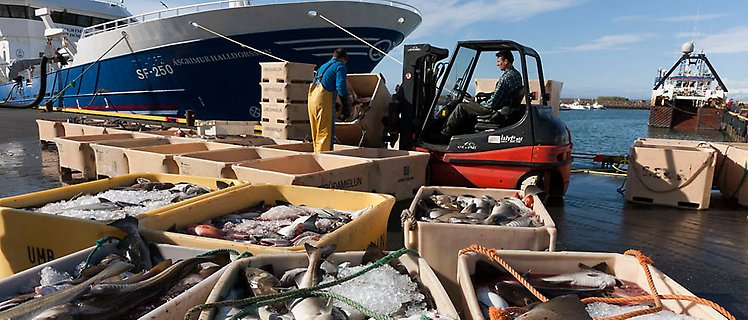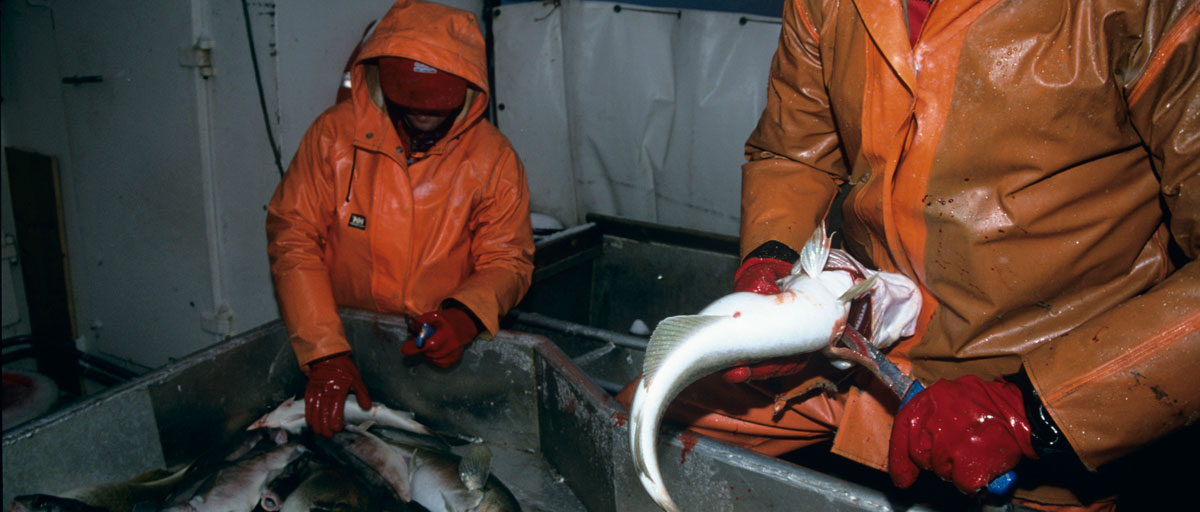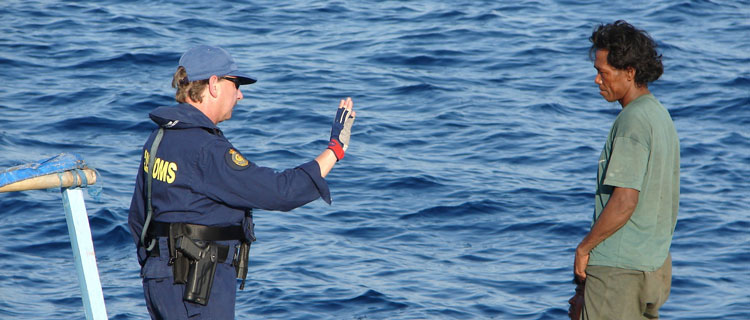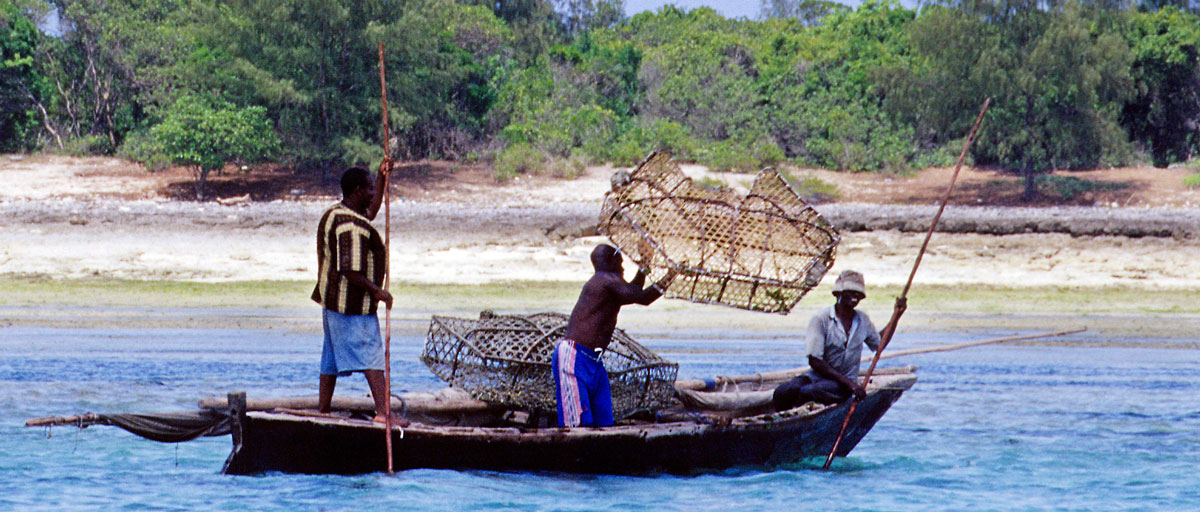
Centre researcher Tim Daw explains how international fish trade masks fish stock decline. The presentation is based on a study recently published in the journal Fish and Fisheries.
Seafood and consumer awareness
The invisible collapse
Global seafood trade leave consumers unaware of over-exploited marine ecosystems
Lack of price signals from local fisheries to consumers represents a challenge for sustainable fisheries governance
Study suggests three strategies to address this missing feedback
However, neither strategies provide a singular solution to the problem.
A disturbing flaw of today’s globalised seafood trade is that consumers often remain blissfully ignorant of increasing strains on marine ecosystems and fish species. This is because global trade guarantees consistent availability of fish at affordable prices by sourcing from suppliers around the world, despite fish species being on the brink of extintion.
This means consumers remain unaffected by changes in any one ecosystem.
In an article recently published in Fish and Fisheries, several Centre researchers including Beatrice Crona and Tim Daw have examined the lack of price signals from local fisheries to consumers. This lack of feedback represents a challenge for sustainable fisheries governance.
As long as price and availability remain stable, it is difficult for consumers to perceive or respond to local over-exploitation.
"Collapse of local stocks often go unnoticed and consumers do not perceive a problem until many collapses add up and global supplies are threatened"
Beatrice Crona, lead author
Together with colleagues Crona suggests three strategies to address this missing feedback.
Click here to read the scientific article
Reconnection, consolidation and campaigns
The first is to reconnect consumers with the sources of their fish through a more transparent and traceable supply chain. For example catch-traceability and labelling allow consumers to know more about where their fish comes from. Meanwhile, certification schemes such as that of the Marine Stewardship Council, help provide consumers with awareness and guarantees of sustainable standards and practices.
The second opportunity springs from the ongoing consolidation of seafood trade actors. For better or worse big seafood companies occupy an increasingly central and powerful role in the globalised seafood trade. These actors have an incentive to care about long term global sustainability, as well as the power to lead changes in the seafood industry towards more sustainable practices.
A third strategy is to go outside the market and target people as citizens, rather than consumers, with publicity campaigns about marine sustainability issues. For example the celebrity chef, Hugh Fearnley-Whittingstall's 'Fish Fight' campaign mobilised popular support and put significant pressure on politicians, large retailers and wholesale buyers to address unsustainable fisheries in Europe.
Get the best of the three
However, neither of the three strategies provide a singular solution to the problem. Certification and traceability schemes suffer from subjective and underspecified scoring systems and are ill-suited for small-scale fisheries. And even if consumers turn away from unsustainably caught fish, there is often an alternative market where the product can be sold.
The cod trade in Sweden during the 1990s is a good example. Although NGO campaigns raised consumer awareness about stock declines and reduced Swedish cod consumption, Swedish cod catches remained high because they were exported to continental Europe instead.
"Furthermore, combatting unsustainable exploitation with market instruments which rely on increased consumption will always be a somewhat problematic approach to sustainability issues," co-author Tim Daw warns.
Relying on progressive and "pro-sustainability" responses from increasingly powerful market actors may also be problematic. Concentrating power in the hands of only a few in the supply chain, greatly enhances their ability to define production terms and set prices.
Finally, targeted campaigns to increase public awareness often lack nuance and can be blunt instruments to resolve sometimes complex fisheries management issues.
"Paradoxically, as global trade gives consumers access to more of the world’s fish stocks, it also distorts their perception of the status of these resources, making them less aware of declines. This is a serious challenge for sustainable fisheries that we need to address from various angles, using multiple strategies," Beatrice Crona sums up.










